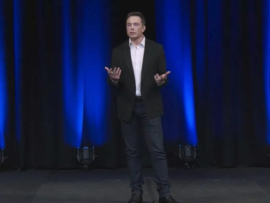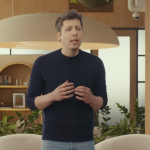
A federal court has ruled that Elon Musk must face OpenAI’s harassment allegations, rejecting the billionaire’s attempt to dismiss the claims brought by the company he co-founded. U.S. District Judge Yvonne Gonzalez Rogers denied Musk’s plan to disregard the claims, which OpenAI officially filed in 2024.
The case stems from a long-running dispute between Musk and OpenAI CEO Sam Altman, dating back to before the company’s rise to prominence with the launch of ChatGPT in 2022.
Case will go before a jury next year
According to Bloomberg, Musk must face OpenAI’s allegations that he ran a “years-long harassment campaign” against the company he co-founded in 2015. OpenAI claimed Musk sought to damage the company by harassing it in social media posts, press statements, and legal statements, and by trying to take over the lucrative AI house.
Musk had asked the court to dismiss or delay the claims. OpenAI’s claims were “sufficient,” said Gonzalez Rogers.
The OpenAI/Musk case will go before a jury in March 2026.
Dispute over OpenAI’s mission and finances
The legal dispute also touches on Musk’s broader criticisms of OpenAI’s shift from nonprofit roots to commercial ambitions. Musk has long argued OpenAI has failed in its mission to be a nonprofit dedicated to protecting people from the very same AI it seeks to create. In March 2024, Musk sued OpenAI, claiming the company was trying to line its and Microsoft’s pockets instead of serving as a nonprofit.
Although Musk later withdrew that lawsuit, OpenAI responded with a countersuit, accusing Musk of harassment employing “bad-faith tactics” to hinder the company’s operations.
“You can’t sue your way to AGI,” a statement from OpenAI in December 2024 read. “We have great respect for Elon’s accomplishments and gratitude for his early contributions to OpenAI, but he should be competing in the marketplace rather than the courtroom.”
Musk founded his own AI company, xAI, in 2023. Furthermore, he tried to buy OpenAI in February 2025; the company’s board rejected the $97.4 billion offer.
Musk’s early role and eventual exit at OpenAI
Musk was among the founders of OpenAI in 2015. The startup was intended to usher in an age of artificial general intelligence safely. Both Musk and Altman publicly stated concerns about AI growing powerful enough to be dangerous to humanity. Throughout the company’s relatively quiet development, Musk made bids for greater control of its direction.
In 2018, Musk resigned from his position as co-chair of OpenAI.
Since then, the growing popularity of generative AI has brought the business rivalry further into the spotlight.
In other news, Musk plans to take Apple to court for allegedly suppressing other AI products in favor of OpenAI’s ChatGPT in its App Store.





